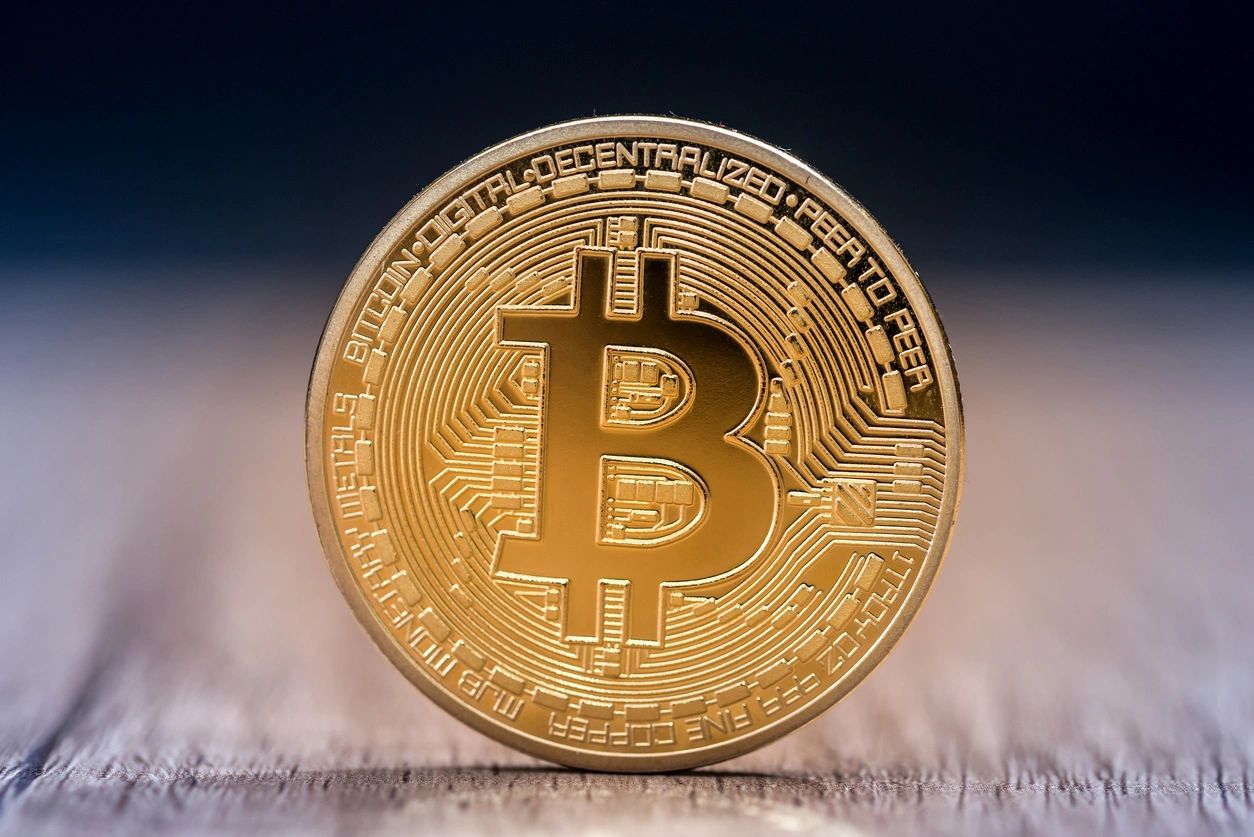Ponte las gafas, por ver el estafa (put on your glasses, to see the scam)
Bitcoin = Freedom from the system, right? Bitcoin is going to 1,000,000 dollars per coin, right? (A market cap of 21 Trillion Dollars). El Salvador is the new Switzerland, right?
By the looks of some headlines out there, these are the assumptions surrounding El Salvador. The tiny country has received lots of media attention lately for their radical reduction of crime and adoption of Bitcoin as legal tender. However, these are surface-level changes and fundamentally it’s far from a free country.
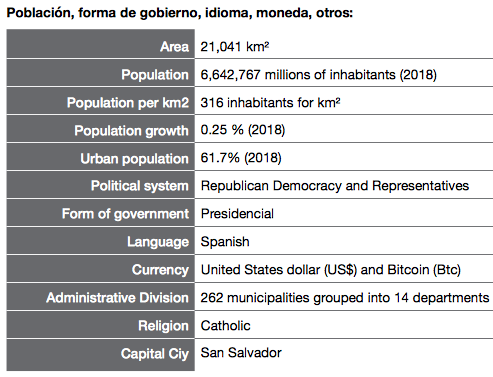
El Salvador
Many have claimed El Salvador is the new place to be; the bastion of freedom & economic liberty that it is destined to be–the new Singapore, Switzerland or even what the United States used to be in some sense. While I don’t buy this hype one bit…let’s look at the two positive narratives that it has going for it to start. Bitcoin and Reduced Crime.
Bitcoin
Despite all the possible strategies used by the Salvadoran government to give a positive image to Bitcoin (Casa del Bitcoin, Chivo App, Bitcoin City, Volcano Bonds, marketing campaigns, etc.), the population continues to snub the number 1 cryptocurrency. Bitcoin adoption has been generally quite weak locally despite it becoming international news for months on end. Currently, the country has only about 109,000 people holding BTC–this is only 1.72% of the population! If we compare with other countries, that ranks 55th in the world even though they are only ones who have adopted it as legal tender. Part of this may be due to its major logistical and technical glitches. Many Bitcoin Youtubers have made content showing that the (government controlled) Chivos app simply doesn’t work and the Bitcoin City’s plans are continually delayed.
It makes sense that one would want to shield themselves from dollarized inflation (since they have no control over dollars) but unfortunately, one year on, Bitcoin is nowhere near being able to shield El Salvador from its entanglements with the dollar. BTC has failed as an inflation hedge, at least for now.
Crime has greatly improved but…
On the crime front, it was a place to go if you were tired of living. In 2015, El Salvador held the unfortunate distinction of being the world’s deadliest non-war country, with a crime rate of 107 intentional homicides per 100,000. Other crime stats would blow other dangerous countries out of the water–and this is not just 2015, this was a common trend. From 2022 crime reports, El Salvador has become one of the safest in all of Latin America.
While I cannot ignore the positives, at the end of the day, the improvements won’t be long-lasting as the core of the country hasn’t changed one iota. Don’t believe me? Let’s take a further look. First please consider signing up for free:
Initial Problems
First of all, it’s easy to look at the surroundings and note the improvements in volatile, crammed place like El Salvador. When everything is terrible and suddenly it’s not, the gap feels tremendous & inspiring–but not terrible does not mean great–it just means no longer terrible. Now being free enough to walk after 9pm does not constitute real freedom, it just means you’re not longer going to get your camera or phone stolen.
Many have deemed that El Salvador is the escape refuge for them in the search for freedom amid global tyranny especially during the whole Covid scam. However, even on this matter it was not all rainbows and sunshine. Compared to Costa Rica and Mexico, it was awful. The insistence on wearing a mask, PCR testing and social distancing was enforced quite stringently.
The second phase of the reopening of the economy was postponed by two weeks to 21 July. According to this delay, the opening of San Salvador airport was postponed to 18 August.
The state of emergency and the all-day movement restrictions in El Salvador were extended until at least 06 June. San Salvador Airport will remain closed until further notice.
There is also a full day curfew until 21 May. Wearing a mask in public is mandatory.
Leaving the country by land is also not possible since Honduras and Guatemala closed their borders with El Salvador. Passengers of marine vessels will be refused entry or be quarantined for 30 days. A state of emergency, bans on gatherings, restrictions on the freedom of movement, a countrywide full-day curfew and entry bans for foreign nationals are still in effect in El Salvador. Only one person per household is allowed to leave the house to purchase essential items.
The legal system is based on the Napoleonic Code. It’s worth mentioning as most of the more business friendly jurisdictions are based upon English Common Law.
The Economy & Bitcoin explained
An amazing 24% of El Salvador’s economy comes from remittances. An approximate same number (around 26%) are under the poverty line which is deemed as earning $5.50 USD a day. I know Americans who spend this on coffee, daily. This means that if you moved there you’d be surrounded by 1,630,000 (mas o menos) folks in poverty. Nothing against these folks, but desperation leads to some unusual behaviour, and knowing this, how secure can you feel? The locals know you’re in the house on the hill.
Aspects of the Salvadorian economy come from agricultural sources with a majority being coffee but also corn, cotton, peppers, livestock. However, according to the World Food Programme, it retains “limited access to food and nutrition, limited job opportunities and low incomes leading to irregular migration”.
Infrastructure is par for the course for the region where it’s not unusual for toilets to be unable to handle toilet paper. Large office buildings are not very common and the quality of homes are in very poor condition relative to North America.
[On the topic pertaining to infrastructure in Latin America] I was speaking to a Mexican and an Argentine and I explained some immigration benefits that El Salvador may offer & they simply laughed. “If there’s something there for you, the millions who have emigrated haven’t found it” (approximately 2.5M Salvadorian diaspora reside in the USA).
El Salvador’s economic history beyond the last 2 years has a terrible past involving corruption, money laundering, terrible bureaucracy, lack of entrepreneurship & bribery.
Bureaucracy remains wicked with many services overpriced (I can attest), taxes remain high and unfriendly. This may explain the number of new businesses created is a fraction that of Panama, Costa Rica or even Botswana in Africa.
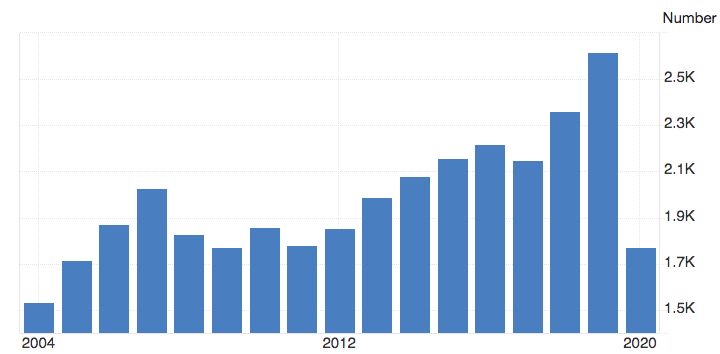
With the exception of the newly created zero tax on companies in the software, digital, IT space, El Salvador does not allow many activities to go without paying something to the state.
To negate this, maybe Bitcoin can help. What’s the advantage for them if nobody uses it? My hunch is that the introduction of Bitcoin served two purposes for the El Salvador government. Firstly, you get an influx of foreign investments from crypto investors and you launch the Volcano bonds to pay off the chunks of debt owed to the IMF and World Bank. They can’t lose– if Bitcoin takes off in price, they made money that way; if it drops in price, they’ve already converted the foreign Bitcoin into dollars. Either way, it’s taking your money to fund their expenses.
Secondly, this warms citizenry up to the concept of digital money held on their cell phone. Despite it not proving a success, the digital seed has been planted for their Transfer365 to grow–Yes El Salvador, the almighty Bitcoin sound money haven is working on their own Central Bank Digital Currency.
Those “Bit Boys” who are “bullish” on El Salvador are simply saying so to justify putting their life savings into Bitcoin–gotta keep the hype going somehow. Listen to their reasonings and you’ll quickly hear their ignorance about the country and/or economics.
The Big Bubble Burst
Transfer365 is a payment system which clears all transactions through the central bank, which to me, sounds like the central banks progression towards a central bank digital currency; the most dystopian tool currently out there and the antithesis of freedom.
The Central Bank (BCR), claimed to be “playing a major role in the Central American country’s economy” state that “No Salvadoran should be left unbanked thanks to the bank’s ongoing drive for inclusion…”. I’m not sure if they took that from Vladimir Lenin or came up with it themselves but the BCR has earned a high reputation as of recent for it’s activity in El Salvador economy. The now ‘under state control’ centralized entity have utilized their reputation to power them towards the launch of Transfer365. They are selling it as one not having to wait in lines, get stuck in traffic jams, saving transfer fees, and it’s a place where the loan companies, banks and little guy can all take part. The mechanisms offer a greater surveillance (permanent monitoring in their words) of the transactions and a direct channel to offer liquidity, support financial incentives as determined by the state and directly support the economy. To lure retired citizens, they even offered a 30% increase to their pensions!
The BCR truly has monopolistic power with respect to internal and external trade. It’s no doubt more convenient, for everyone involved, but it’s all under the careful watch of a centralized body. Perhaps it would be difficult to implement this Transfer365 years ago– now, it may be just be viewed as an alternative to Bitcoin, one that is likely faster and cheaper to use.
It’s Safe! (Cause headlines & lawyers say it is)
A country like El Salvador doesn’t just “become” safe. Improvements, yes, but the fact of the matter is that there’s been an absolute slew of propaganda painting the picture that El Salvador is the haven of security and lawfulness in the Americas. Want to know what they don’t tell you? The gangs still exist–and in a big way.

The Mara Salvatrucha (MS13), Barrio 18 Sureños, and Barrio 18 Revolucionarios still maintain 54 armed groups throughout the country. So what’s that? It’s estimated that at least 54,000 gang members remain at large throughout the country. These people have been classified into three categories: active members (homeboys), aspiring members (chequeos), and “collaborators,” a broad designation for those who allegedly assist the gangs in a number of tasks. “Aspiring members?” Yes. El Salvador remains wickedly poor with a level of poverty that most kids in developed countries can’t fathom. If you have no skillsets, no education, no motivation, no business, no money, no family, no nothing–walking the slippery slope of gang life seems like a possibility for many youngsters. What’s more concerning is that latest police reports indicate that it may be likely that the reduced crime in the country is less about Bukele’s crackdown–and more so about them deciding not to commit these crimes to avoid bad press. The police reports further state: “Genuine internal assessments of gang dynamics have been exceedingly difficult to obtain due the Bukele administration’s clampdown on government transparency”
The point being that these gangs do not just go away– these organizations are imbedded into every layer of the region and the country. So long as illegal immigration, open drug use and demand for guns increases in the USA, the gangs have their revenue streams made for them.
El Salvador remains under a state of emergency even after it arrested 72,000 people. There have been multiple cases of innocent people being arrested under terrible conditions, too. How many? 7,000! Seven THOUSAND people have been released after being arbitrarily arrested this year and last. That’s about the 5th of the population of Monaco arrested, randomly without cause. Imagine minding your own business and you’re thrown into this 72,000 pile of hardcore tattooed gang folks–I wonder if they use Bitcoin in prison though? The fact of the matter is you’re going to catch all sorts of fish with a big enough net.
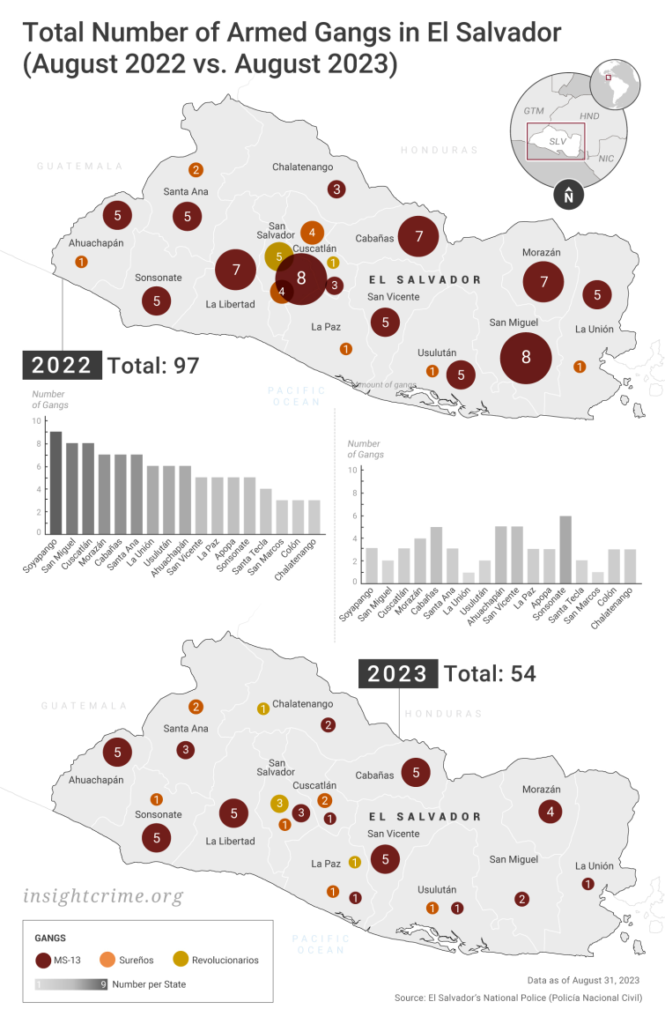
Bureau-crazy examples
Companies in El Salvador:
- Entities with more than ten employees must pay a payroll tax that is destined to the National Institute of Professional Development
- Companies are required to register themselves with the Registry of Commerce and pay an annual business licence fee assessed on the company’s assets
- Social security contributions (ISSS) are mandatory for both employee and employer and are destined to public health services
- Contributions to the pension fund (AFP) are mandatory for both employee and employer
- [Municipal Taxes] The taxes are applicable to the company’s assets located in each municipality and are paid on a monthly basis.
- Fiscal domicile of the company in El Salvador–Mandatory
- According to Art.127 of the Tax Code of El Salvador, every company must appoint an administrator, who will represent it before the Salvadoran Tax Office, whether he or she is Salvadoran or a foreigner residing in El Salvador [Legal Representative].
- Based on Art. 91 of the Salvadoran Tax Code, upon registration of the company, it is mandatory for it to file the tax forms, even if it is not subjected to pay taxes. These forms are both monthly and yearly. Fines are applied without filing these forms
- Every year all companies must pay the renewal of their Company and Establishment Registration License
- Registration fees of an SRL increase with the number of deposit capital. Very large deposits cause the company to incur incredible setup fees.
- Annual mandatory audits may apply
Moreover, given the aforementioned rules of requiring an address, it can mess with your taxes. El Salvador companies, on paper, do not tax business activity that takes place outside of El Salvador. On the surface, you should be able to create a company from abroad and not be subject to El Salvador tax (since it’s not doing anything there). Although when you dig deeper you realize that the rules force you for your business to have some sort of tie or “presence” for tax purposes. In other words, even if you’re not presently there, the records show that the transaction was done with the El Salvador business at a local address with a local representative meaning it is done “locally” and therefore negates the territorial tax benefit. On several accounts lawyers have told me that it would be difficult to not be taxed in El Salvador for ideas that were strictly remote. To the extent that this territorial tax rule applies, it does not work for financial income such as dividends, capital gains or interest.

Of the types of companies or industries exempt from VAT (Valued Added Tax), the state threw themselves a bone. Pension funds, national lotteries, public transportation, public water institutions, purchasing of government debt, interest (deposit & loan) accrued by local financial institutions or entities registered at the BCR, health services (only governmental public services), educational agencies (only after they are accepted by the Ministerio de Educación), public performances rendered by authorities (government), services rendered under a labour relationship, including employees of public & municipal governments.
National agencies have exempted themselves of 9 out of 13 exemptions. A Libertarian society you say?
Another issue I’ve come across impacts some people while applying for residency. The crux of the issue is that some of the documents have time limits for the application to be valid. The state itself is so slow (around 3-6 months) before viewing your application and confirming it that the police record check has already expired (after 90 days) and the whole application is deemed invalid. Rather than having your application on stand-by requiring an update, you have to apply all over again (and pay again).
Just Released Tax Info:
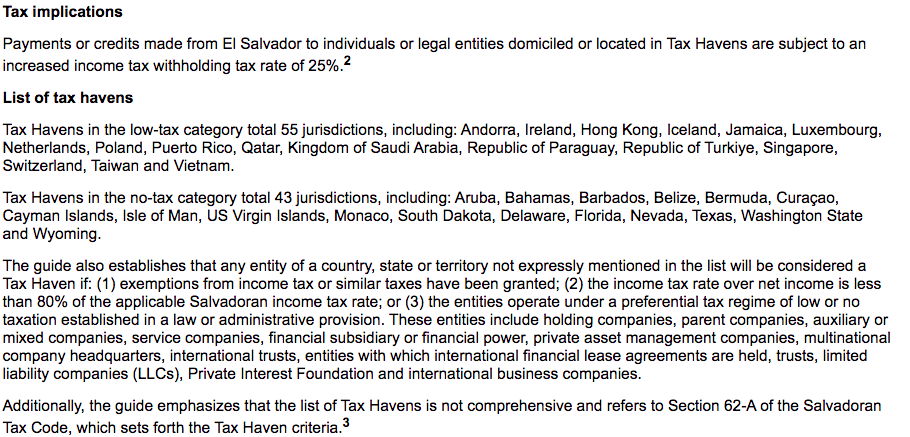
Is all of this something you would expect from a country that is free, business-friendly and changing for the better?
Closing
I cannot underscore how much the citizens of El Salvador are deserving for more stable times—but the big picture is they’re not out of the neck of the woods & I believe those making heavy commitments to the region are mistaken.
El Salvador is far from living up to it’s name (The Saviour). Bureaucracy remains wicked with many services overpriced, taxes remain unfriendly & the adoption of Bitcoin may have very well fell flat on its face (in fact the opposite with Transfer365 may have occurred!). Old habits die hard and unfortunately, that seems to be the case for the Central American country of El Salvador.
After studying the crime analysis, they reduced crime, but the gangs absolutely coat the country + they arrested thousands of innocent people in the process.
Add in poverty, food insecurity, little BTC adoption, high debts, population density & a general culture that does not resemble English Common rule of law.
Once again, I commend the radical reduction in crime, however there’s more to a country than crime figures; just like there’s more to a country than a beach & margaritas.
El Salvador has been an interesting place who wanted to use cryptocurrency, explore Central America & witness its beauty. It additionally allows residents to live without property tax and live far cheaper than in countries like Canada or USA.
Deep-down El Salvador has many systemic problems that I believe foreigners overlook (or don’t hear about). Central America has been always an unstable place and El Salvador needs some fundamental changes before it can be said to have bucked the trend–let alone become the next sophisticated Singapore (Singapore is in trouble!!!).
The way I see it, the hype surrounding El Salvador is a clever method by which they seek to pay their debts. This larger PR image enables them a way to immediately attract foreign dollars to do so. Nothing integral has changed.
Our advice? Don’t fall for it…
Thanks for reading, consider sharing, exploring our site pages and subscribing (preferably all three!). We do a great deal of research for you here!
#StayOnTheBall !

